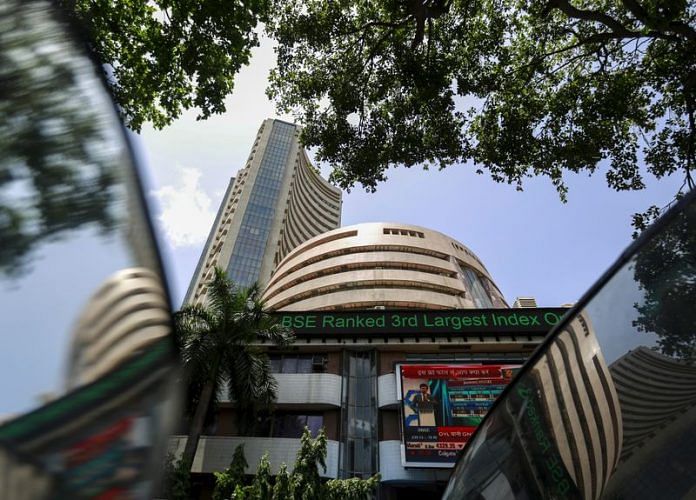By Jayshree P Upadhyay
MUMBAI (Reuters) -The Indian government raised the tax rate for capital gains from equity investments and equity derivatives trades on Tuesday, seeking to curb the frenzy that has propelled the market to record highs.
The government raised the tax on stocks held for less than one year to 20% from 15%, effective immediately, and to 12.5% from 10% for those held for over one year.
It also nearly doubled the tax on equity derivatives trading, raising the securities transaction tax on futures to 0.02% from 0.0125% and to 0.1% from 0.0625% on options, effective from October.
The benchmark NSE Nifty 50 and S&P BSE Sensex fell about 1.6% after Finance Minister Nirmala Sitharaman announced the changes in her budget speech. They recovered to end the day down about 0.13%.
The tax changes are a short-term negative for the market, said Trideep Bhattacharya, chief investment officer of Edelweiss Mutual Fund.
“The tax increase is marginal but will help bring in rationality on options trading exuberance and will better investment behaviour. The increase in capital gains will push investors towards long-term investing,” Bhattacharya said.
Since their COVID-19 lows in March 2020, India’s stock indexes have surged more than 200% each, largely spurred by the influx of retail traders, especially in the derivatives segment.
Retail investors now account for 41% of overall derivative trading volumes, compared with just 2% in 2018. India’s monthly notional value of derivatives traded was a worldwide high of 9,504 trillion rupees ($113.60 trillion) in May, data shows.
The markets regulator has warned of the risks of derivatives trading, while the government has likened it to a “gambling instinct.”
The tax difference of 7.5 percentage points between short- and long-term holdings is a high bridge to cross for a short-term churn, said Bijal Ajinkya, partner at law firm Khaitan and Co.
Hedge funds, portfolio managers used to sell shares or churn portfolios within 12 months and the increased tax will now force them to hold for longer, Ajinkya said.
In other changes, the government also reduced the tax on listed bonds held for more than 36 months from 20% to 12.5%, in line with the tax on equity investments.
It also lowered the tax on unlisted shares held by foreign companies for two years to 12.5% from 20%.
The budget also amended the taxation on a company buying back its shares.
The entire amount received by investors will now be taxed as dividends at ordinary rates as against the 20% buyback tax rate, said Rajesh Gandhi, partner, Deloitte India.
(Reporting by Jayshree P Upadhyay; Editing by Savio D’Souza and Mrigank Dhaniwala)
Disclaimer: This report is auto generated from the Reuters news service. ThePrint holds no responsibilty for its content.




